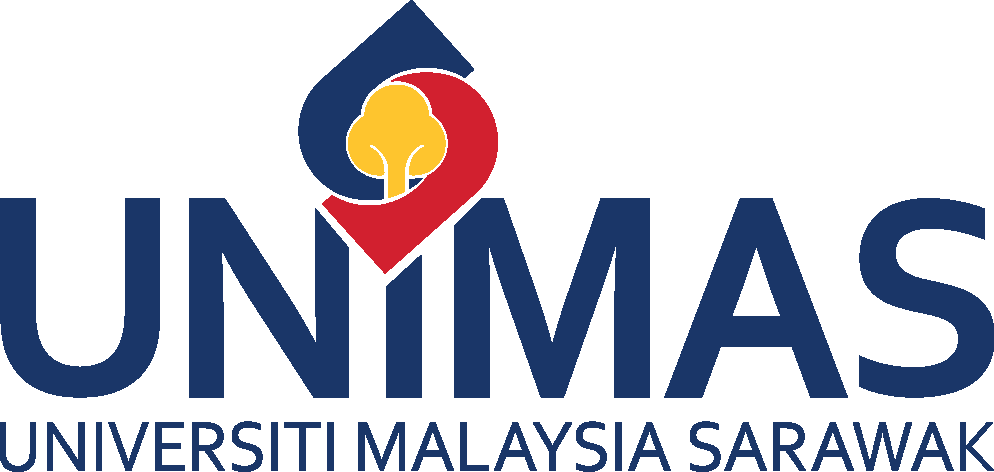CLIMATE ACTION
UNIMAS CLIMATE CHANGE PROGRAM & CAMPAIGN
UNIMAS strongly supports programs, conference and campaigns related to climate change by working with local and international relevant parties such as the environmental department, researchers and other NGOs in providing awareness and conducting research to curb the occurrence of disasters caused by human activities.
In 2017, UNIMAS hosted the national environment day celebration at the Sarawak state level where the event was launched by the Deputy Chief Minister of Sarawak. Among the essence of the celebration is to create maximum impact to the community on awareness of the importance of environmental conservation.
UNIMAS strongly supports programs, conference and campaigns related to climate change by working with local and international relevant parties such as the environmental department, researchers and other NGOs in providing awareness and conducting research to curb the occurrence of disasters caused by human activities.
In 2017, UNIMAS hosted the national environment day celebration at the Sarawak state level where the event was launched by the Deputy Chief Minister of Sarawak. Among the essence of the celebration is to create maximum impact to the community on awareness of the importance of environmental conservation.
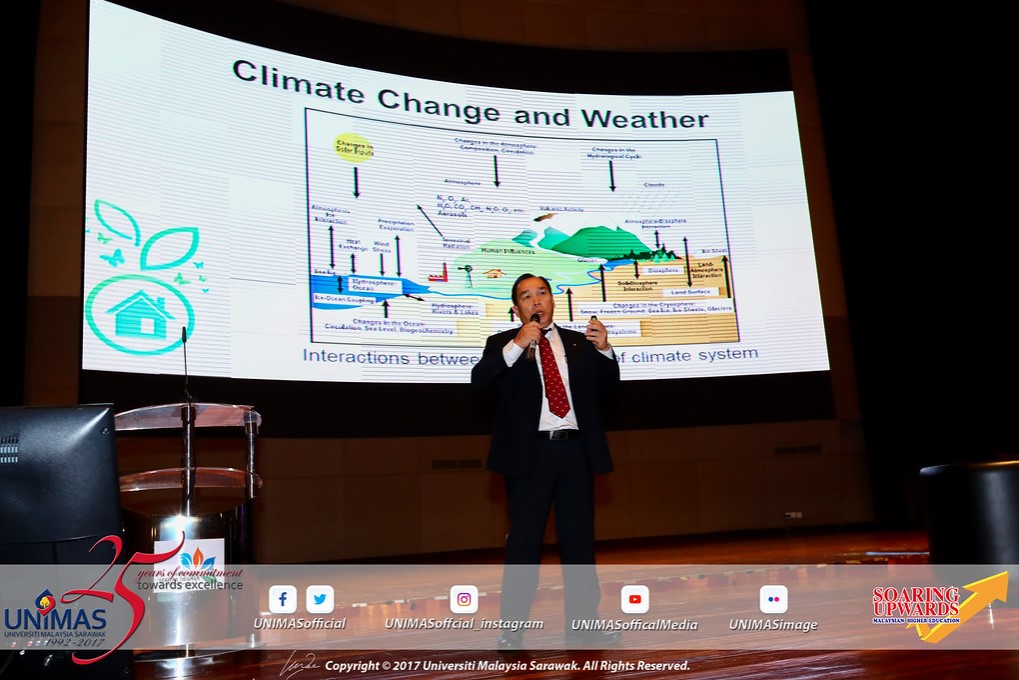 |
|---|
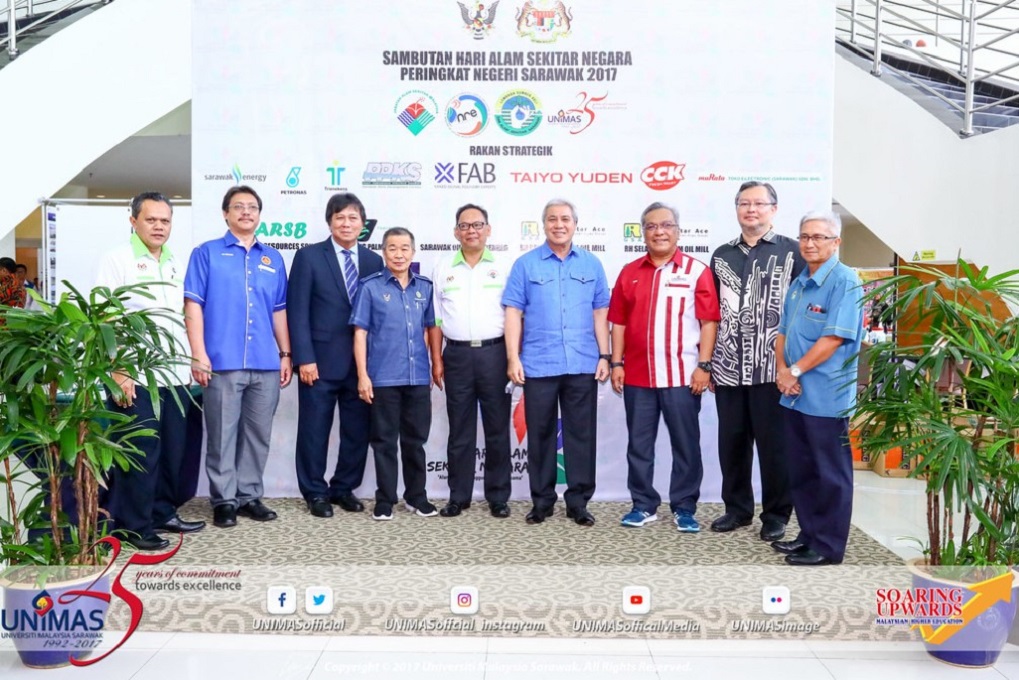 |
|---|
Several experts among educators from UNIMAS were also appointed as speakers to give speeches in international programs in providing awareness to the general public from various backgrounds on the importance of caring for the environment in order to balance the needs of sustainable development and also sharing measures taken by the Malaysian government in ensuring environmental sustainability.
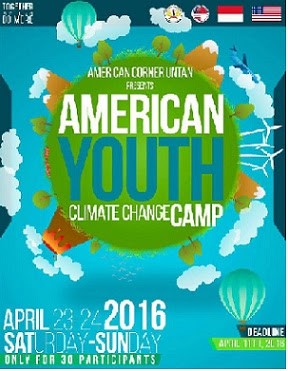 |
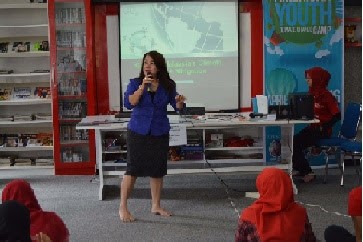 |
|---|
CLIMATE ACTION PLAN
UNIMAS has signed a Memorandum of Understanding (MoU) with Universiti Malaysia Sabah (UMS) to collaborate on developing an IT disaster recovery centre through a reciprocal approach. In the collaboration, UNIMAS will use UMS’ data centre as a disaster recovery site and vice-versa. The reciprocal approach would enable both universities to share their IT expertise and space and to save costs in developing the disaster recovery centre. The scope of collaboration under the MoU included providing space for backup servers and reciprocal services such as network systems, utilities, minor maintenance, connectivity, safety and physical access. Both universities would also be responsible for the equipment provided by each of them respectively.
 |
|---|
STATUS OF CLIMATE CHANGE MANAGEMENT IN SOUTHEAST ASIA
In order to prepare the NC2 report a Project Management Group (PMG), led by the Undersecretary of Conservation and Environmental Division (CEMD) in the Ministry of Natural Resources and Environment (NRE) was set up in 2006 to co-ordinate the work of three main Working Groups (WG) that provide the inputs for the report. The three main working groups are as follows:
- National Greenhouse Gas (GHG) Inventory WG
- Vulnerability and Adaptation (V&A) WG
- Mitigation WG
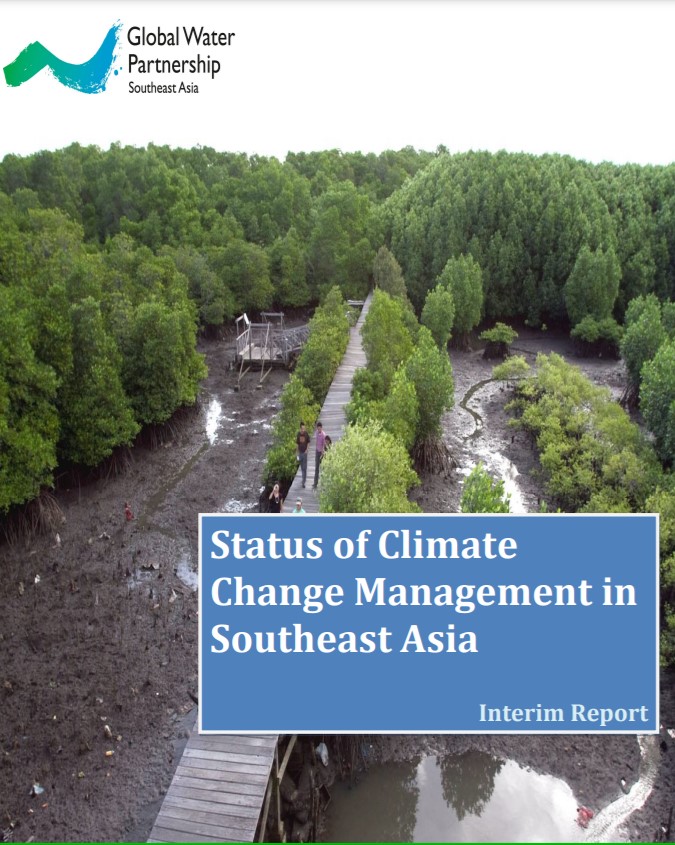 |
|---|
RESEARCH IN CLIMATE CHANGE (FLOOD, HAZE AND DROUGHT)
UNIMAS under the Department of Civil Engineering, Faculty of Engineering has created computer modelling effort with Sarawak State Government under the care of Sarawak Rivers Board to guide the barrage operations in flood warning. Previously the Kuching city had experienced recorded spring tides. These flood events had caused losses of lives, properties and infrastructures.
UNIMAS is also conducting a study on forest burning that occurred in Indonesia and caused severe haze in all three countries in Borneo-Indonesia, Brunei and Malaysia in 2019. Open forest burning in gambut land is for agricultural purposes. The concept of clearing agricultural land using the cut and burn method should be stopped immediately even if the method is considered simple and cheap. This massive forest burning is causing haze caused by global warming.
Severe droughts in Sarawak due to the strong El Nino has impacted the water supply and irrigated agriculture. The Standardized Precipitation Index (SPI) was used for drought identification and monitoring in Sarawak River Basin. There was an increase in the numbers of dry months for most of the rainfall stations as compared to the previous years, which could be due to climate change. Findings in research showed that generally there was a decreasing trend for the SPI values for the three time scales, indicating a higher tendency of increased drought event throughout the basin and planning and formulating of drought strategies to reduce and mitigate the adverse effects of drought.
COMMITMENT TO CARBON NEUTRAL UNIVERSITY
UNIMAS has proven its commitment by establishing a University Sustainability Committee by 2020. The following is the Term of Reference (TOR) of the UNIMAS university sustainability committee.
 |
|---|
University Sustainability Committee
Chairman: Deputy Vice Chancellor (Research and Innovation)
Deputy Chairman / Alternate Chairman: -
Members:
- Registrar
- Director of Development Office
- Director of the Chancellery Office and International Relations
- Senior Director of the Center for Research, Innovation and Enterprise
- Director of the Center for Academic Development and Management
- Deputy Registrar of Student Services Center
- Director of the Center for Practical Technology Entrepreneurship and Innovation
- Dean of the Faculty of Engineering
- Dean of the Faculty of Science and Technology Resources
- Dean of the Faculty of Social Sciences and Humanities
Secretary:
- Director of the University Sustainability Center
- Deputy Director of the University Sustainability Center
Secretariat: University Sustainability Center
Power Sources:
A. External
- UNIMAS Strategic Plan
- United Nation SDG Plan 2030
- 11th Malaysia Plan (11MP)
- Malaysia Education Blueprint 2013-2025
- Malaysia Education Blueprint (Higher Education) 2015-2025
- Malaysia’s Roadmap Towards Zero Single-Use Plastics 2018-2030
- MOE SULAM Playbook
B. Internal
- University Board of Directors
- Executive Committee
- Standing Committee of the Senate Standing Committee on Research and Innovation
Jurisdiction:
-
To plan and formulate a holistic plan for the enforcement of UNIMAS towards the achievement of the Sustainable Development Goals (SDGs);
-
Coordinate the strategy and management process of university sustainability initiatives in 4 domains namely community, research, curriculum and institutional management;
-
Review and recommend policies that determine the key policies and guidelines for the UNIMAS sustainability plan;
-
Monitor the university's achievements towards the Sustainable Development Goals (SDGs) 2030; and
-
Prepare periodic reports on the implementation of the UNIMAS sustainability plan for the purpose of reporting to THE University Impact Ranking and any relevant sustainability body.
